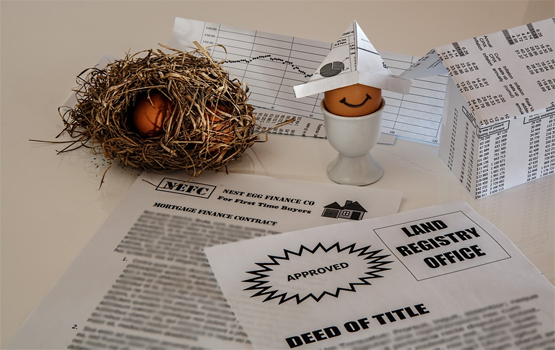Arranging Your Mortgage
By preparing yourself and your finances before a property purchase, you can ensure a smooth finance process and can potentially save thousands on your loan. Start here by learning about numerous mortgage options available and get familiar with mortgage terminology.
Checking your credit history and making sure the information on your profile is correct should be your next step. Fix any problem you discover. Many times unknown problems can come to the surface. Some of the problems may include recorded judgments, alimony payments due, glitches on the credit report due to any number of reasons both accurately and inaccurately.
Find out how much you can afford and check different lenders. It's necessary to know exactly which kinds of institutions will lend you money. Banks and trust companies lead the pack, but credit unions and private lenders also offer funds. Fear not—mortgage basics are fairly simple and there are a host of professionals more than willing to help, with mortgage brokers and mortgage specialists at the top of the list.
Mortgage brokers have access to a wide variety of lending sources, including domestic banks and trust companies, but they can also employ other alternatives such as pension funds, real estate syndicates and foreign banks.
Sometimes, you may also have opportunity to 'assume' an existing mortgage held by the seller. Advantages of assuming a mortgage are that you can speed the buying process due to reduced paperwork and save money in lower legal fees and closing costs. A disadvantage may be that the current lending rate may be less than that of the assumed mortgage.
After learning about different financing strategies involved, you'll want to at least familiarize yourself with the basic mortgage process.
You'll need to learn basics about the different kinds of mortgages that are offered on the market today. The most common by far is the 'conventional mortgage.' Lenders will loan you up to 75 per cent of the appraised value or purchase price of the property (whichever is lower), and you must come up with the remaining 25 per cent yourself. Many people save specifically for this purpose, but in some cases, alternate or 'secondary' financing maybe available.
If you don't have the 20 per cent down payment, a 'high-ratio' mortgage is one alternative. These are available for up to 95 per cent of the appraised value or purchase price of the property (whichever is lower) to a maximum set by government regulation. The proviso is that high-ratio mortgages must be insured, and the cost, from one to three percent of the mortgage amount, falls to you.
'Variable-rate' mortgages are usually offered for both conventional and high-ratio mortgages. Typically, your monthly payments remain fixed for the term, while the interest rate fluctuates with economic conditions. This means that if interest rates climb, you'll be paying more per month in interest. If rates drop, you'll then be paying more off your principal. Conversely, 'fixed rate' mortgages maintain the same rate of interest over the entire negotiated term.
Deciding which type of mortgage is right for you will depend on what you can afford. Prepayment privileges are another important part for borrowers to consider. These arrangements allow you to pay money against the principal, reducing the total amount of interest you'll ultimately pay.
Amortization refers to the time period in which the mortgage is assumed to be paid. A common amortization period is 25 years. This means interest and principal payments are set as if you were paying the amount borrowed over a 25 year payment schedule. Obviously, the shorter the amortization period, the less interest you will pay.
Don't worry, arranging mortgage is not that difficult—all it takes is a little reading on your part and the advice of a good mortgage professional. Use our mortgage info pages to learn more about mortgage.
HELPFUL INFORMATION:
Mortgage Info
Regardless of how certain you are that you will get mortgage, it is always good idea to get pre-approved from the mortgage lender of your choice. This will officially address any questions about your eligibility, rate, terms and it will enable you to better negotiate for the property of your choice.
Read more...
Buyer Info
Since choosing a right property to buy starts with needs and desires and finishes with a sizable portion of your earnings used for paying for it, it's important to ensure that the property you choose both meets your needs and is a good "fit" with your financial situation.
Read more...

